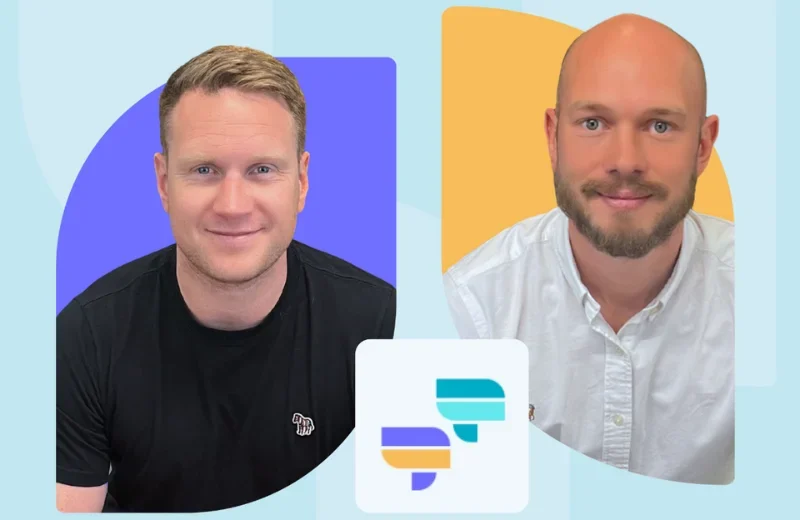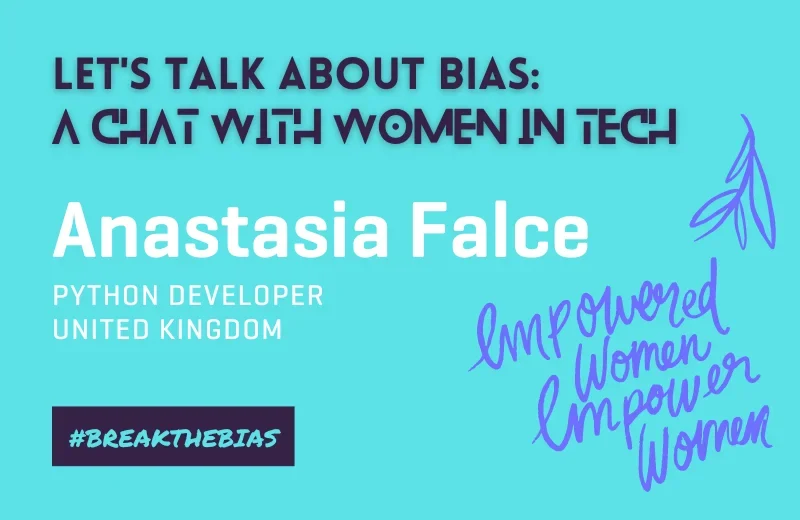The job market is constantly evolving, shaped by economic fluctuations, technological advancements, and changing industry demands. In these times of uncertainty and transformation, candidates face new challenges when pursuing their career goals. To shed light on this dynamic landscape, we interviewed seasoned recruitment experts, Josh Kelly (Senior Sales Manager, Scandinavia) and Thorge Block (Sales Manager, DACH). Drawing from their extensive experience in the recruitment industry, they offer candid perspectives on the current job market and the key factors that can make a significant impact on a candidate’s career journey.
Would you say there has been a change in candidate behaviour recently? If so, why?
JOSH:
Naturally there is a bit of fragility in the market. Candidates are a little bit more wary of maybe joining a company and being first in, first out. There’s a huge emphasis on this naturally if you are going to leave potentially a stable position, it’s making sure that you join a stable company.
When it comes down to, to us, and as we partner with candidates, it’s us making sure that we are the first point of contact around that message and importantly getting that across.
We must make sure that the companies we partner with can hire, are able to bring people in and obviously keep those people for the foreseeable, keep the people who they hire happy and also ensure that they can build a career there.
THORGE:
I think the recent period has been marked by considerable uncertainty, stemming from factors such as mass layoffs due to socioeconomic cycles and wars, as well as the ever-present uncertainty from the political landscape. In the wake of this climate, we are seeing “trust” become the number one factor on which both candidates and clients heavily rely on. There are lots of people on the market who are currently worried, so we need to be able to give candidates the reassurance that not only their personal data, but also their recruitment process, is being handled in the most proficient and professional way possible.
Candidates are also now realising that they no longer have the power in the market, and they are asking for things that will no longer be given. We are seeing more and more clients just outright reject candidates who want too much money and have maybe 70-80% of the requirements, but don’t 100% meet client’s requirements. It’s becoming a market that is, after a long period of time, finally flipping back to the client’s side after many years of being a candidate-led market, so it is an interesting period. It’s a period of turmoil, in which trust seems to be the number one currency for success.
"Candidates are now realising that they no longer have the power in the market, and they are asking for things that will no longer be given."
Thorge Block Sales Manager, DACH
What can clients do to reassure candidates they are safe in their next career move?
JOSH:
I think it’s prepping the clients as well. So that first stage interview, we’ve got to make sure that we can only give so much information. But we do have access to information around -not obviously their day-to-day financials- but showing what their growth or what their growth has been year on year. Whether that is people that they’ve hired, or turnover – you’ve got access to all that on LinkedIn.
But then just making sure that in the first interview, that topic is being covered off, there’s no point waiting until the end of a process and then suddenly someone’s saying, “oh yeah, by the way, what’s the company stability like? It’s poor- okay, well I’m not going to go here.” It’s just making sure that we get that and address that straight away- it saves everybody time.
THORGE:
It’s the old goalpost being moved on both sides now. Clients will establish what the goalposts are, then often readjusting them throughout the process and sometimes it can be unrealistic, so these are very critical and often uncomfortable, questions that just need to be asked.
If we had unlimited time, this would be a straightforward job, but it’s time that is so restrained for all these processes.
JOSH:
You’ve got to be quite open and frank with people now, and essentially say, “look, are you willing to leave a company to join a company that’s maybe in a scale up phase or startup phase? Is that realistic? Is that going to suit you or your family?”
With the market now, everybody’s very worried about being first in, first out, as I said earlier. That’s, that’s probably the main objection handle that we have consistently across the board. So, it’s really sort of understanding and ascertaining, is that a reality for you?
THORGE:
On the flip side, where there is not a quantity of candidates, it’s making sure that you have clients who are going to buy.
It’s becoming more and more apparent that you need to pre-assess that actual ability to, and the need to, buy. A lot of clients want to see candidates. They don’t want to completely stop their hiring processes, but in reality, they would only take the “Eierlegende Wollmilchsau”, a German word that basically translates in English to “something that’s really unrealistic, something that can produce everything”.
These clients won’t stop looking at candidates, but in reality, they aren’t going to hire right now. Maybe there were no more projects to these large enterprise service providers who, who normally have bids worth triple in the millions. Obviously once these projects stop being allocated, the market as a result will see a very significant shift in the hiring patterns of these companies.
"The most important thing we bring to all the candidates who we partner with, and all the companies who we partner with, is a respect for their time. That is extremely important to us, and we have a responsibility there."
Josh Kelly Senior Manager, Scandinavia
Do you have a message for candidates who are feeling hesitant right now?
JOSH:
Thorge and I have been in recruitment for a long time, and we’ve been here before, right? So, where it’s become a sort of “job-led market” and certain sectors continue to hire, it’s getting that message across that there will be sectors and domains that will continue to hire consistently – like your medtechs or e-Commerce, for example.
It is just being transparent and making sure that there is a huge emphasis on the fact that even though some companies and sectors, like quite large corporations in banking have put things on hold for the time being, but there are actually many different sectors and domains that are going to continue hiring and scaling, which is very exciting- being part of that is actually a great career move.
THORGE:
Yeah, for the German market, I agree with exactly what Josh is saying. Since 2019, we’ve had a massive vacuum. The German Institute for Economy announced that the car industry is no longer the main driver for the German industry. Because of that, there was no real driving force, or resolution to this vacuum, to turn up to not just save, but to bring up revenues and new projects in the German market.
I read somewhere that currently, only 1 in every 25 people in Germany is involved in the car industry, whereas in 2003 that was 1 in every 7 people in Germany. Something else will come on the market, so it’s just about finding those golden opportunities out there as the market readjusts.
There are a lot of agencies who promise the world, are still quite delusional about the reality out there. It’s become more and more apparent that you need to understand that the market and the economy has drastically changed in just the past few months. We know that you need to have high quality; you need to meet the standard and then move on to the next opportunity.
What advice do you want to share with our candidates who are currently in the market for a new job right now?
JOSH:
Just do your research, you have to be 100% sure that you are going to move. If you’re not, and it’s not the right time, then don’t worry about it. We understand that the market is such that it has made a lot of people a bit uncertain and that is completely fine.
The most important thing we bring to all the candidates who we partner with, and all the companies who we partner with, is a respect for their time. That is extremely important to us, and we have a responsibility there.
The reality is our time is more important than anyone’s, and that’s because we’re able to save everyone’s time. That’s why we recommend that you be absolutely sure if you are prepared to move, and really understand that if you do want to look for a new role, what does that mean and what is it going to take?
Do your own research and make sure that if it is time to apply for a new role or hire a new member of your team, then let’s make it happen!
THORGE:
There’s always going to be something that makes it difficult to move at a current place and time. There is never going to be a perfect time to move, so stop trying to wait for that perfect moment to move.
I think that one of the most dangerous situations you can be in is when you’ve become complacent – where you find yourself generally unhappy, but just happy enough not to move from your current role. If this is how you are feeling in your current role, you might need to get out there and have a look at other companies.
That’s why I recommend speaking to people like Josh and myself so that you can find out what’s possible and become more informed about what your options are. As Josh said, do your research and we can help with that research.
JOSH:
It’s competitive out there at the moment, there’s a lot more candidates on the market, and look everybody within the recruitment sector knows this.
Be prepared, if you’re not going to invest that time to move, unfortunately you’re going to miss out on opportunities if you’re not prepared to put that time in.
THORGE:
Yeah. And just trust us- we’re here to help you. This whole thing is completely free charge for you. The only thing we need from you is your trust.
Whether you’re a job seeker seeking new opportunities or a company looking to hire top talent, Parallel provides valuable insights and guidance to help you thrive in today’s ever-changing job market. Get in touch with Thorge or Josh to discuss this in more detail by clicking the button below.
Want to discuss this further?
Our community is at the heart of industry innovation, transformation and progress. We’re here to talk about it.
















